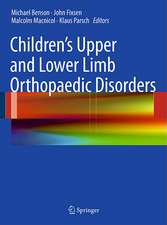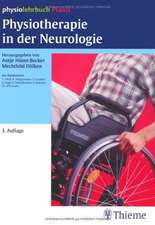Handbook of Behavior Therapy in Education
Editat de S. N. Elliott, F. Gresham, J. C. Witten Limba Engleză Paperback – 21 sep 2011
Preț: 410.81 lei
Preț vechi: 432.43 lei
-5% Nou
Puncte Express: 616
Preț estimativ în valută:
78.61€ • 81.10$ • 65.60£
78.61€ • 81.10$ • 65.60£
Carte tipărită la comandă
Livrare economică 26 martie-09 aprilie
Preluare comenzi: 021 569.72.76
Specificații
ISBN-13: 9781461282389
ISBN-10: 1461282381
Pagini: 860
Ilustrații: XXII, 856 p. 7 illus.
Dimensiuni: 178 x 254 x 45 mm
Greutate: 1.46 kg
Ediția:1988
Editura: Springer Us
Colecția Springer
Locul publicării:New York, NY, United States
ISBN-10: 1461282381
Pagini: 860
Ilustrații: XXII, 856 p. 7 illus.
Dimensiuni: 178 x 254 x 45 mm
Greutate: 1.46 kg
Ediția:1988
Editura: Springer Us
Colecția Springer
Locul publicării:New York, NY, United States
Public țintă
ResearchCuprins
I Foundations of Behavior Therapy.- 1 Behavior Therapy and the Educative Process.- 2 Research Methodology and Measurement.- 3 Behavioral Assessment.- 4 Diagnosis and Classification.- II Technical Issues in the Use and Dissemination of Behavior Therapy.- 5 Acceptability of Behavioral Treatments in Educational Settings.- 6 Developmental Factors and Their Relationship to the Identification and Treatment of Behavior Problems of Childhood.- 7 Treatment Effect Norms.- 8 An Evaluation of Behavioral Interrelationships in Child Behavior Therapy.- 9 Dissemination of Behavioral Procedures in the Schools: Issues in Training.- 10 Behavioral Consultation: Macroconsultation for Instructional Management.- III Problems and Challenges for Behavior Therapy.- 11 Generalization and Maintenance of Treatment Effects.- 12 On the Ecological Validity of Behavior Modification.- 13 Helping, Helplessness, and Harm.- 14 Legal Issues in School-Based Behavior Therapy.- IV Behavior Change Strategies.- 15 Thought and Action in Educational Interventions: Cognitive-Behavioral Approaches.- 16 Home-Based Reinforcement Procedures.- 17 Reductive Procedures.- 18 The Token Economy.- 19 Self-Monitoring.- 20 Social Skills: Conceptual and Applied Aspects of Assessment, Training, and Social Validation.- 21 Biofeedback.- V The Practice of Behavior Therapy with Specific Problems and Populations.- 22 Early Intervention: Infants, Preschool Children, and Families.- 23 Learning-Disabled Children.- 24 Mild and Moderate Mental Retardation.- 25 Conduct and Attention Deficit Disorders.- 26 Fears and Phobias.- 27 Behavioral Habilitation of Students with Severe Handicaps.- 28 Childhood Depression.- 29 Medical and Health-Related Disorders.- VI The Future of Behavior Therapy in Education.- 30 Behavioral Reform of Education: A Venture at Risk.- 31 The Future of Behavioral Analysis in Educational Settings.










